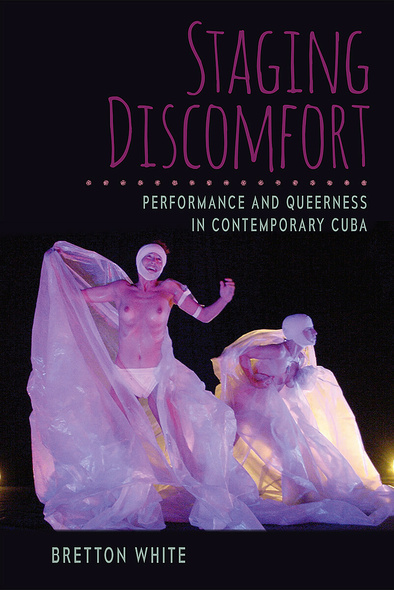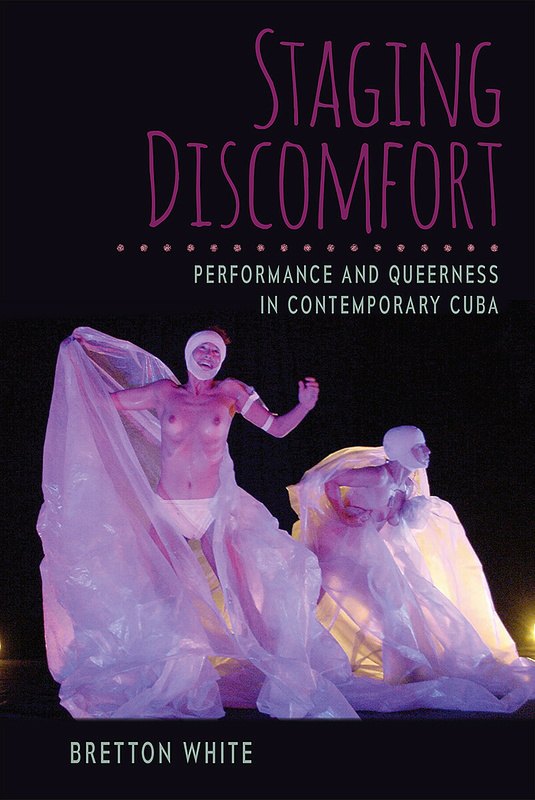
258 pages, 6 x 9
10 b/w illus., notes, bibliography, index
Hardcover
Release Date:09 Jun 2020
ISBN:9781683401544
Staging Discomfort
Performance and Queerness in Contemporary Cuba
University of Florida Press
This visionary volume examines how queer bodies are theatrically represented on the Cuban stage in ways that challenge one of the state’s primary revolutionary tools, the categorization and homogenization of individuals. Bretton White critically analyzes contemporary performances that upset traditional understandings of performer and spectator, as well as what constitutes the ideal Cuban citizenry.
Following the 1959 revolution, nonconformists were monitored and reported by local committees and punished or reformed by the government. Censorship was rampant, and Cuban art suffered as the state tried to control the national message. Through the lens of queer theory, White explores how the body has been central to the state’s fear-based marginalization of gay life and looks at the ways these theatrical performances defuse that fear. She highlights the revolutionary model of masculinity and the role it plays in excluding people based upon visible queer difference. White finds that, through experimental performances of sexuality, actors create connections with audiences to evoke shared feelings of discomfort, intimacy, shame, longing, frustration, and failure, which echo the prevalence of these feelings in other Cuban spaces. By performing queerness, these plays question the state’s narrative of heteronormativity and empower citizens to negotiate alternative understandings of Cuban identity.
Following the 1959 revolution, nonconformists were monitored and reported by local committees and punished or reformed by the government. Censorship was rampant, and Cuban art suffered as the state tried to control the national message. Through the lens of queer theory, White explores how the body has been central to the state’s fear-based marginalization of gay life and looks at the ways these theatrical performances defuse that fear. She highlights the revolutionary model of masculinity and the role it plays in excluding people based upon visible queer difference. White finds that, through experimental performances of sexuality, actors create connections with audiences to evoke shared feelings of discomfort, intimacy, shame, longing, frustration, and failure, which echo the prevalence of these feelings in other Cuban spaces. By performing queerness, these plays question the state’s narrative of heteronormativity and empower citizens to negotiate alternative understandings of Cuban identity.
This volume not only creates a corpus of works staged by some of contemporary Cuba’s most innovative and challenging theater practitioners but also shows how theatrical performance can create experiences and ephemeral communities that allow audience members to imagine ‘queer,’ alternative understandings of Cuban identity.’—Camilla Stevens, author of Family and Identity in Contemporary Cuban and Puerto Rican Drama
‘At the intersection of aesthetics and politics, this book suggests that non-normative instances of proximity to the human body as presented in contemporary Cuban theater offer productive sources of contestation within and against a political project that has defined itself in terms of virility, austerity, and discipline.’—Guillermina De Ferrari, author of Community and Culture in Post-Soviet Cuba
Bretton White is assistant professor of Spanish at Colby College.




